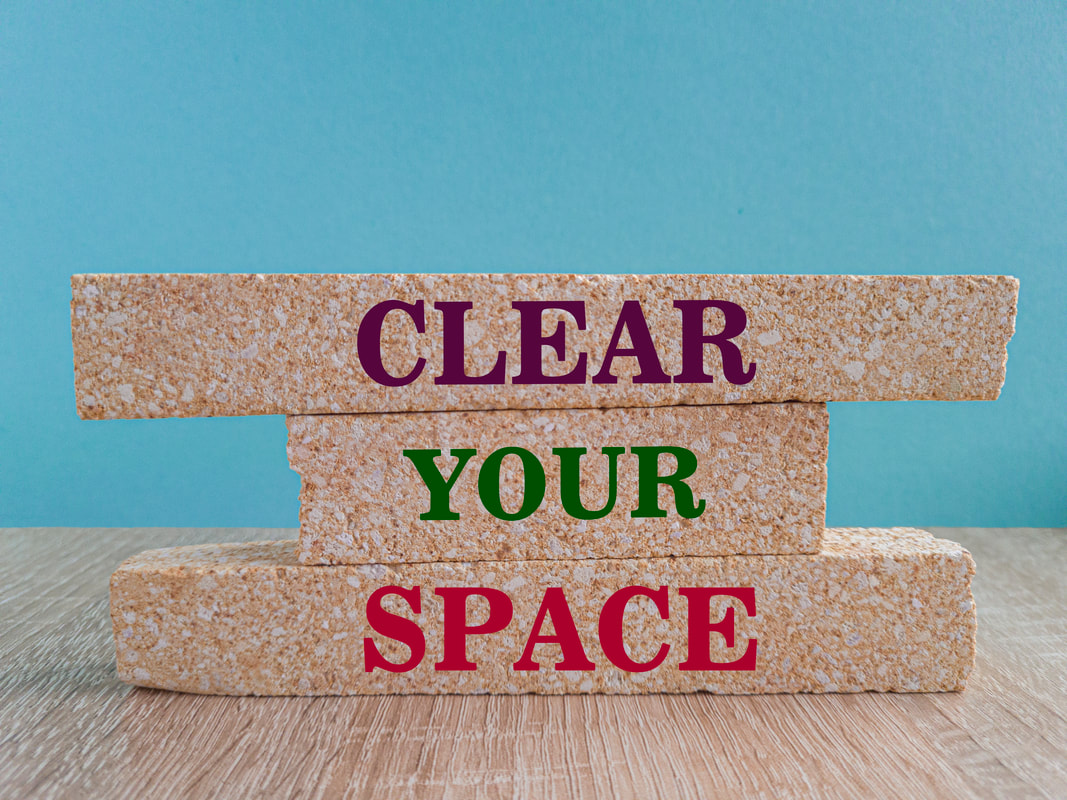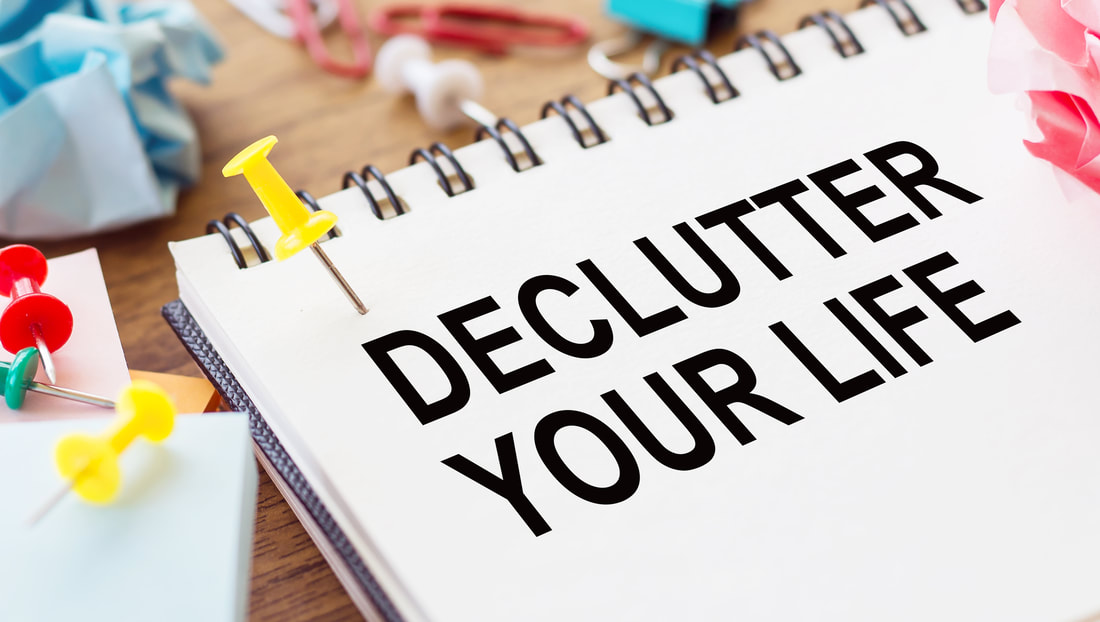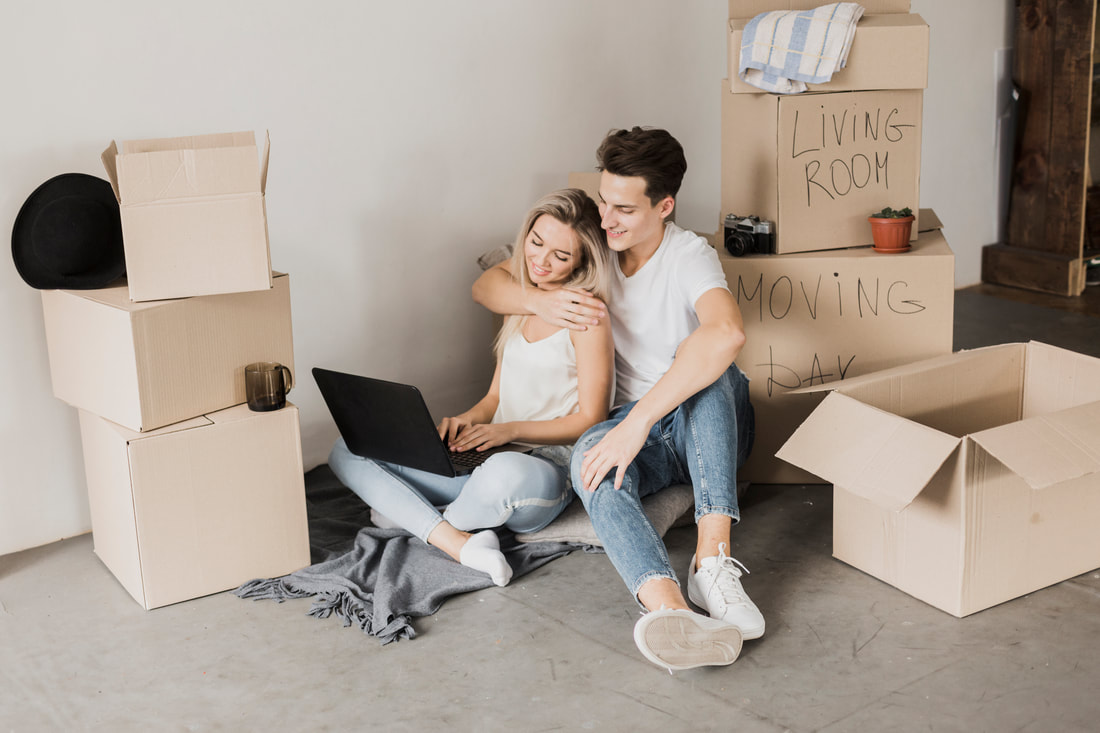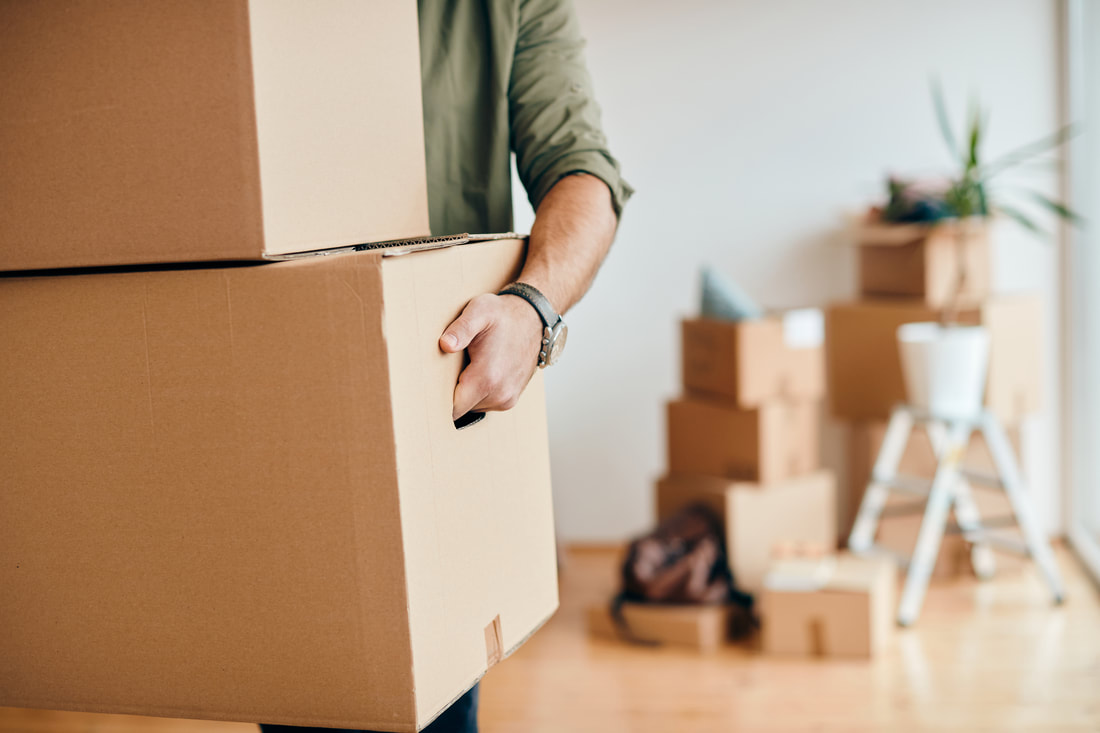Decluttering Tips for Effective House ClearanceTel: 0115-824-1384Decluttering your home to create a more organised, spacious, and mentally soothing living environment.Decluttering, at its core, is the act of removing unnecessary items from an overcrowded or disorganised space. This practice not only helps in achieving a more organised and spacious environment but also plays a significant role in fostering a mentally soothing atmosphere within one's living quarters. By systematically sorting through and eliminating items that no longer serve a purpose, individuals can create a serene and welcoming home environment that promotes peace of mind and enhances overall well-being.
The significance of effective house clearance in maintaining a healthy lifestyle.Effective house clearance is pivotal in establishing and maintaining a healthy lifestyle, both physically and mentally. Cluttered environments can significantly increase stress levels, distract from the tasks at hand, and impede the ability to relax fully. Conversely, spaces that are well-organized and free of unnecessary items promote clearer thinking, reduce anxiety, and facilitate a sense of control and accomplishment. Physically, decluttering can reduce dust, allergens, and other irritants that may compromise indoor air quality, leading to a healthier living environment. Furthermore, the process of decluttering itself encourages physical activity, which can contribute to overall physical health. In essence, effective house clearance is an essential step towards nurturing a holistic and healthful lifestyle.
The psychological benefits of decluttering, such as reduced stress and enhanced decision-making capacities.The psychological benefits of decluttering are profound and multifaceted, profoundly influencing one's mental health and cognitive functions. Chief among these benefits is the significant reduction in stress levels that individuals often experience in decluttered environments. Clutter is not just a physical nuisance; it can be a substantial source of psychological stress, overwhelming the senses and clouding the mind. By clearing out unnecessary items, individuals can achieve a more tranquil and orderly space, which in turn fosters a calm and focused mental state.
Furthermore, decluttering can markedly enhance decision-making capabilities. In cluttered spaces, the brain is bombarded with excessive stimuli, which can tax cognitive resources and impair decision-making processes. However, in a streamlined and organised environment, the mind is less distracted and better able to process information efficiently. This clarity can lead to improved decision-making, with individuals finding it easier to set priorities and tackle tasks in a logical, methodical manner. Therefore, the act of decluttering can be seen not just as a physical undertaking, but as a mental exercise that strengthens cognitive abilities and promotes psychological well-being. Popular decluttering methods and philosophies, such as Marie Kondo’s KonMari Method.Several decluttering methods have gained popularity, each offering unique strategies for tackling clutter and promoting a more organised lifestyle. Perhaps one of the most well-known among these is Marie Kondo's KonMari Method. This philosophy centres around the idea of keeping only those items that "spark joy", thereby encouraging individuals to reevaluate their possessions and retain only those with significant personal value. The KonMari Method also advocates for a specific order in decluttering, starting with clothes, then books, papers, komono (miscellaneous items), and finally, sentimental items. This systematic approach not only simplifies the decluttering process but also instils a sense of gratitude and mindfulness towards belongings and living spaces. By focusing on the emotional relationship between individuals and their items, the KonMari Method offers more than a mere tidying-up technique—it proposes a fundamental shift towards more intentional living.
Preparation for DeclutteringTips for mentally preparing yourself for the decluttering process.Preparing your mind for the decluttering process is as crucial as the physical act itself. Firstly, envision your ideal living space and what it means for your daily life. This vision serves as a guiding light, motivating you to create an environment that aligns with your aspirations for comfort, functionality, and peace. Then, commit to the process by setting realistic goals and timelines. Decluttering doesn't happen overnight; understanding this can help manage expectations and reduce feelings of overwhelm. Acknowledge the emotional attachments to certain items and accept that parting with them may be challenging, but also liberating. Cultivate a mindset of letting go, focusing on the benefits of having fewer, but more meaningful possessions. Finally, consider inviting support from friends or family members for both accountability and encouragement, making the process more manageable and less daunting. These mental preparations can pave the way for a smoother and more effective decluttering experience, ultimately leading to a more organised and serene living environment. If you are into serious hoarding then you may need help with a hoarder clearance company in Nottingham.
Creating a practical decluttering plan that suits your schedule and lifestyle.Creating a practical decluttering plan that suits your schedule and lifestyle is essential for ensuring the process is both effective and sustainable. Begin by assessing your daily routine and determining the most realistic times for you to engage in decluttering activities. For those with busy schedules, it may be more practical to allocate shorter, more frequent sessions, perhaps 15-30 minutes daily, rather than attempting to tackle everything in one day. Alternatively, dedicating a specific day of the week for a longer decluttering session might be more feasible for others.
Next, prioritise the areas in your home that require the most attention or are likely to have the most significant impact on your daily life once organised. This approach ensures that your efforts yield visible and motivating results early in the process. Break down each area into smaller tasks, making the project more manageable and less overwhelming. Incorporate your decluttering plan into a planner or digital calendar, setting specific dates and times for each session. Treat these appointments as non-negotiable to maintain momentum. Additionally, consider the disposal method for decluttered items in advance, such as donations, sales, or recycling, to prevent reacc Remember, a decluttering plan should be flexible; it is okay to adjust your schedule or approach as needed. The aim is to make the process achievable and stress-free, fitting seamlessly into your lifestyle and ultimately contributing to subsequent accumulation. and harmonious living space. Room-by-Room Decluttering TipsLiving Room: Strategies for sorting through entertainment items, magazines, and decorations.When tackling the living room, a common area filled with various forms of entertainment, publications, and decorative items, adopting a methodical approach can significantly enhance the space's functionality and aesthetic. Start by sorting through entertainment items such as DVDs, electronic gadgets, and games. Consider which items you regularly use or hold sentimental value and plan to keep those. For obsolete or rarely used electronics, think about donating, selling, or recycling them.
Magazines and books often accumulate on coffee tables and shelves, contributing to clutter. Review your collection, keeping only those publications that you plan to read or that hold significant meaning. Recycle the rest or donate them to libraries or waiting rooms where they can find a new audience. Decorative items can personalise a living room but can also overcrowd it. Evaluate each piece, keeping only those that genuinely contribute to the room's ambience or have sentimental value. Remember, less is often more when it comes to decorations, as fewer items can allow for individual pieces to stand out more. By applying these strategies, you can transform your living room into a more organised, spacious, and welcoming environment for relaxation and entertainment. Kitchen: Guidelines for clearing out expired goods, and unused gadgets, and optimising storage space.The kitchen, often referred to as the heart of the home, can also become a hotspot for clutter without regular maintenance. Begin by tackling expired goods; take everything out of your cupboards and refrigerator, checking expiration dates. Dispose of anything that's past its prime. This not only frees up space but also ensures your kitchen is safe and healthy.
Next, assess your collection of gadgets and utensils. Many of us accumulate kitchen tools with the best intentions, yet they often go unused. If you haven't used a gadget in the past year, consider donating it to someone who will, or if it's no longer functional, recycle it appropriately. Optimising storage space is crucial in the kitchen. Utilise drawer organizers for utensils, and consider adjustable shelving for cabinets to accommodate items of varying heights. Investing in clear, stackable containers can make items easier to locate and keep your ingredients fresh. Implementing a 'zone' system can also improve efficiency; and designate specific areas for cooking, storage, and cleaning supplies. By routinely decluttering and organizing, your kitchen can become a more functional and enjoyable space, reflecting its vital role in your home and life Bedroom: Advice for organising clothing, accessories, and personal items.The bedroom serves as a sanctuary for relaxation and personal space, making its organisation paramount. A clutter-free bedroom starts with your wardrobe. Begin by sorting through your clothing, separating items into categories such as keep, donate, and dispose of. Be honest about what fits, what you wear regularly, and what you no longer need. Utilizing thin, matching hangers can create more space and give your closet a unified look.
For accessories such as jewellery, belts, and scarves, consider using organizer trays, hooks, or specialised hangers designed for such items. These tools can prevent tangles, make it easier to see what you have and help keep your daily favourites accessible. Personal items and keepsakes deserve attention too. Use decorative boxes or baskets that complement your bedroom's decor to store these items. This approach not only helps reduce visual clutter but also protects your treasured possessions. Additionally, regularly review and curate your collection of personal items, keeping only those that genuinely bring joy or serve a purpose. Investing in under-bed storage can be a game-changer for seasonal clothing or extra bedding, maximising unused space efficiently. Lastly, maintain a habit of returning items to their designated spots after use, supporting a lasting organization. By following this advice, you can transform your bedroom into a more organised, peaceful, and welcoming retreat, allowing for restorative rest and personal expression. Bathroom: Suggestions for discarding expired products and efficiently organising necessities.The bathroom, though often one of the smaller rooms in the home, is a critical area for hygiene and personal care that can easily become cluttered with expired products and an excess of necessities. Begin your decluttering process by removing all items from cabinets and shelves and inspecting them for expiration dates. Many personal care products, such as sunscreens, medications, and cosmetics, have a shelf life that may affect their efficacy and safety. Be diligent in disposing of any item that has surpassed its expiration date.
Efficient organisation in the bathroom revolves around maximizing space and ensuring that everyday items are easily accessible. Use drawer dividers for smaller items like makeup and hair accessories, and consider installing shelves or a hanging organiser over the back of the door for extra storage. Transparent containers can be particularly useful for quickly identifying items without needing to search through opaque boxes. For items used less frequently, store them in clearly labelled boxes on higher shelves or in under-sink cabinets. Adjusting your storage based on seasonal needs—for instance, keeping cold remedies more accessible during the winter—can also help maintain order and efficiency. To create a more serene bathroom environment, limit the number of duplicate products open at once and adopt a "one in, one out" policy, especially for items like towels and washcloths. This policy not only helps to keep clutter at bay but also ensures that products and textiles are used within their optimal timeframe, contributing to a more organised and refreshing bathroom space. Categorising and Disposing of ClutterTechniques for categorising items into ‘keep’, ‘donate’, ‘sell’, and ‘discard’.When it comes to decluttering your home, categorising items effectively is a crucial step. To decide whether to keep, donate, sell, or discard an item, first ask yourself a series of questions. For items you're considering keeping, assess their actual utility and emotional value. Do you use it regularly? Does it bring you joy or serve a purpose?
For those items you no longer need but are in good condition, decide between donating and selling. Donation is a wonderful way to give back to the community and support others in need. Consider local shelters, charities, and community centres that could benefit from your unwanted items. On the other hand, selling items can be a way to recoup some of the original investment. Online marketplaces, yard sales, and consignment shops are great venues for selling goods you no longer want or need. Finally, for items that are broken, expired, or otherwise unfit for use, it's important to responsibly discard them. Recycle materials wherever possible and ensure that hazardous items are disposed of in accordance with local regulations to minimize environmental impact. By methodically reviewing each item with these categories in mind, you can streamline your living space while also making positive contributions to your community and environment. Environmentally friendly ways to dispose of or donate unwanted items.Disposing of unwanted items in an environmentally friendly manner not only contributes to reducing waste but also promotes sustainability. For items that are no longer useful to you but could be to others, donating is a great option. Consider giving clothes, household items, and electronics to local charity shops, nonprofit organisations, or community groups that can repurpose them. In addition to traditional donations, you can also explore giving items away through community-sharing platforms or social media groups dedicated to free exchange.
For items that cannot be donated, recycling is the next best option. Many municipalities offer recycling programs for a wide range of materials, including paper, glass, metal, and certain plastics. Electronics and batteries should be taken to designated recycling centres that can safely process hazardous materials contained within them. For unique items such as paint, chemicals, or medication, seek out special disposal programs in your area. These programs ensure that hazardous materials are handled correctly and do not harm the environment. Finally, for items that you're unable to donate or recycle, consider upcycling or repurposing them into something new. This can be a fun and creative way to reduce waste and give old items a second life. Whether it's transforming an old t-shirt into a reusable shopping bag or refurbishing furniture, there are countless ways to minimise environmental impact through thoughtful disposal practices. Organisational Tools and Storage SolutionsStorage solutions that maximise space and maintain order.When tackling the issue of limited space while trying to maintain order in your home, smart storage solutions become indispensable.
One effective strategy is the use of vertical space. Tall shelving units, wall-mounted shelves, and over-door storage racks can dramatically increase your storage capacity without compromising floor space. This is particularly useful in smaller living environments where square footage is at a premium. Modular storage systems offer another excellent approach. They can be customised to fit various spaces and adjusted as your storage needs change over time. Modular units can include drawers, cubes, and shelves that work together, allowing for a highly flexible and efficient use of space. Under-bed storage is an often overlooked solution that can be perfect for out-of-season clothing, extra bedding, or items that are not frequently used. Opt for storage containers with wheels for easy access and consider vacuum seal bags to maximize the amount of space that can be utilized beneath the bed. Lastly, multi-functional furniture that includes built-in storage can be a game-changer. Ottomans with hidden compartments, beds with drawers underneath, and coffee tables with shelves and drawers can all offer additional storage space while keeping your living areas neat and tidy. By incorporating these storage solutions, you can maximize space and maintain a well-organized home environment, making your living spaces both functional and visually appealing. Innovative ideas that keep your home decluttered and organised over the long term.Maintaining a decluttered and organised home over the long term requires innovative strategies beyond the initial clean-out. One effective idea is the implementation of a minimalist mindset, where you regularly question the necessity and value of items in your home. This approach encourages a decluttering habit that becomes part of your daily routine, rather than a periodic overhaul.
Another innovation in home organisation is the use of digital tools and apps designed to help you manage clutter. From inventory apps that keep track of what you own (thereby preventing unnecessary purchases) to decluttering challenges that gamify the process of sorting and discarding, technology can be a valuable ally in maintaining an organised space. Subscription services for household items can also play a role in preventing clutter. By receiving just enough of what you need when you need it, you avoid the accumulation of excess goods, such as toiletries or cleaning supplies. Lastly, the concept of a "sharing economy" encourages borrowing or renting items you use infrequently, rather than owning them outright. This can significantly reduce household clutter and storage demands. By integrating these innovative ideas into your lifestyle, your home can remain a streamlined and peaceful sanctuary over the long term. Maintaining a Clutter-Free HomeDaily habits that prevent clutter from accumulating.Preventing clutter from accumulating in your home is achievable through the consistent practice of daily habits. One of the most effective strategies is the implementation of a "one in, one out" rule. This approach involves discarding, donating, or recycling an item every time a new one is brought into your home, thereby maintaining a balance and preventing unnecessary buildup.
Another daily habit that can dramatically reduce clutter is to designate specific spots for commonly used items and ensure they are returned to their place after use. This not only keeps things organized but also saves time when searching for them. Additionally, setting aside a few minutes each day to tidy up can prevent clutter from becoming overwhelming. This could involve quickly sorting mail, putting away dishes, or straightening up living spaces. Making this a part of your routine can significantly contribute to a clutter-free environment. Finally, conducting a brief nightly review of your living spaces to reset any out-of-place items can help maintain order and prepare your home for the next day. By incorporating these habits into your daily life, the challenge of keeping your home clutter-free becomes much more manageable. Strategies for ensuring that your home remains organised and manageable.Maintaining an organised and manageable home is an ongoing process that requires both commitment and strategy. Implementing a system of regular decluttering sessions can be pivotal in this effort. By scheduling time each week, or even monthly, to go through different areas of your home, you can prevent clutter from accumulating and ensure everything remains in its designated place.
Another effective strategy is to involve all household members in the maintenance of an organized home. Assigning specific tasks or areas of responsibility ensures that the burden of tidying and decluttering is shared, rather than falling on a single person. This not only lightens the load but also fosters a sense of accountability and teamwork. Furthermore, adopting the habit of immediate decision-making regarding new items can significantly contribute to a clutter-free home. Decide on the spot whether something is necessary and where it will be stored, or if it should be returned or passed on. This practice helps avoid the common pitfall of items without a designated place accumulating into unmanageable clutter. Lastly, appreciating the space you have created and recognizing the benefits of a decluttered home can motivate you to maintain it. Take time to enjoy your organised space and remind yourself of how it positively impacts your daily life. This mindset will help encourage continuous efforts to keep your home in a manageable state. Benefits of a decluttered home.A decluttered home stands as a serene haven that offers a multitude of benefits, enhancing one's overall quality of life. It promotes a sense of calm and reduces stress by eliminating the visual and mental chaos often caused by excess belongings. Additionally, it increases efficiency and saves time, as items are easier to find and spaces are more functional. With fewer distractions, productivity sees an uptick, whether it's completing household tasks or focusing on personal projects. A decluttered space also improves safety by reducing obstacles and hazards, making it a healthier environment for all inhabitants. Finally, the practice of decluttering fosters a minimalist lifestyle, encouraging mindful consumption and environmental responsibility. Thus, maintaining a decluttered home is not merely an act of organization; it's a step towards a more peaceful, efficient, and meaningful way of living.
Decluttering is an ongoing process that contributes to a more fulfilling lifestyle.Viewing decluttering not merely as a task but as a continuous process is pivotal in achieving a lifestyle that is both fulfilling and liberating. This habitual journey towards minimalism goes beyond the physical space—it extends into the mental and emotional realms, fostering a mindset of intentionality and contentment. By incorporating decluttering into your daily routines, you invite opportunities for growth, clarity, and a deeper appreciation for what truly matters. Each item you choose to keep or part with is a step closer to aligning your living space with your life's vision and values. Thus, decluttering becomes more than just an act of organising; it's a pathway to rediscovering joy, peace, and fulfilment in a world that all too often encourages excess. Allow this process to gently guide you towards a more thoughtful and purpose-driven existence, where each space in your home reflects the essence of a life well-lived.
PLEASE NOTE: Under no circumstances will we remove anything that we consider to be a hazardous material. Nottingham House Clearance Services
House Clearance with a difference We can purchase some of your Items and offset against the cost of the clearance Call us first Tel: 0115-824-1384 |
|
NOTTINGHAM HOUSE CLEARANCE SERVICES
33 Oakfield Rd
Stapleford
NG9 8FE
Nottingham, UK
0115-824-1384
email: [email protected]
33 Oakfield Rd
Stapleford
NG9 8FE
Nottingham, UK
0115-824-1384
email: [email protected]






